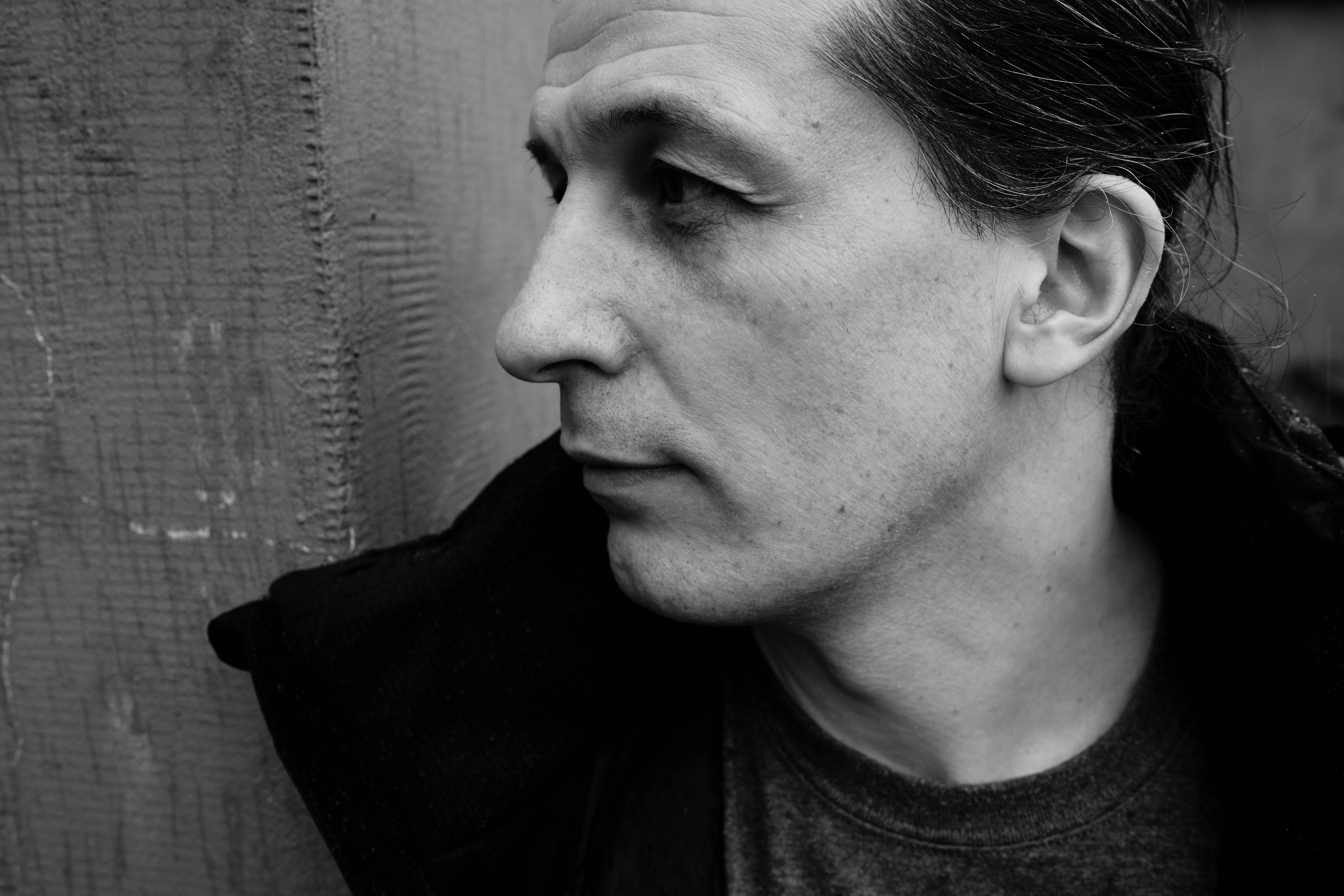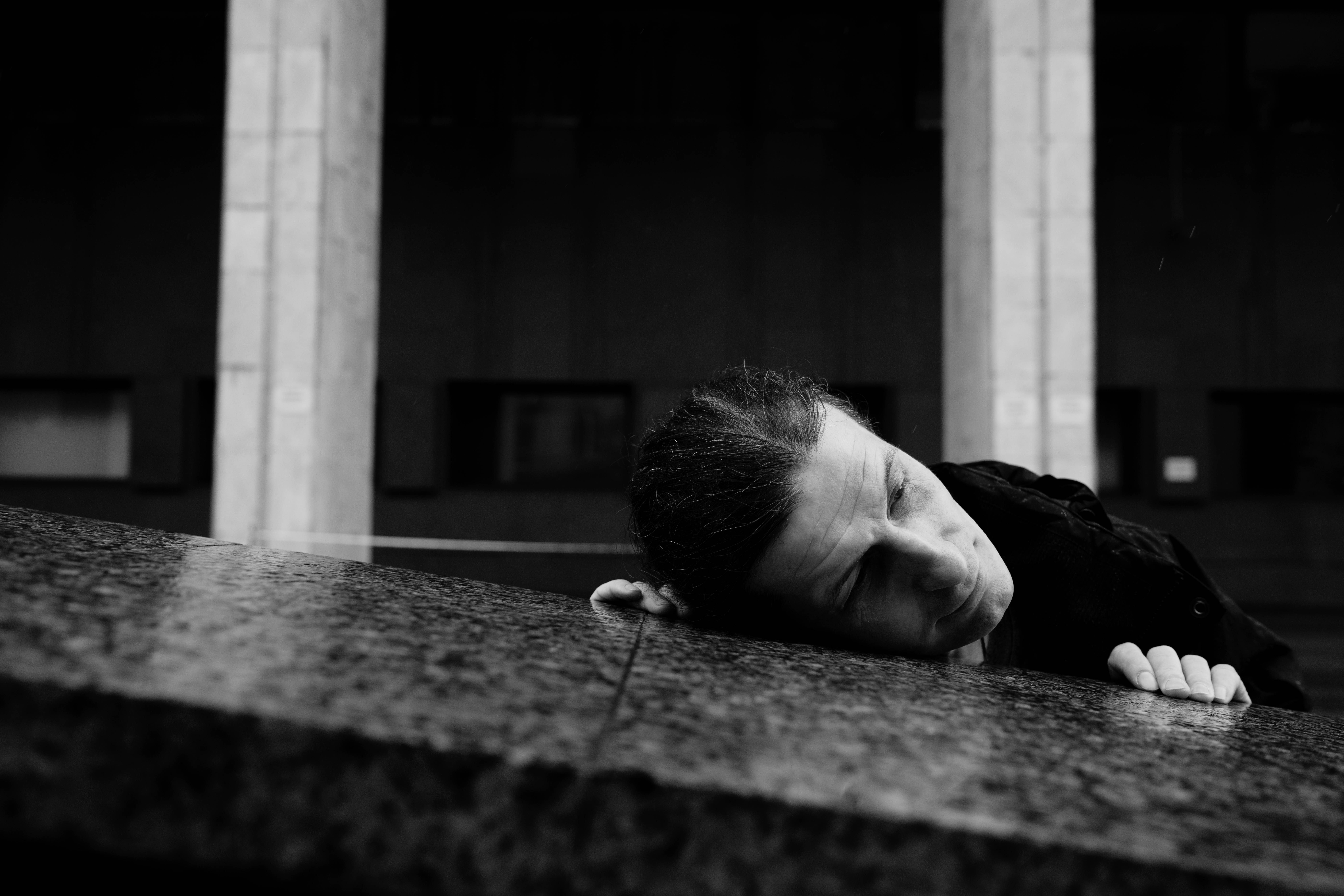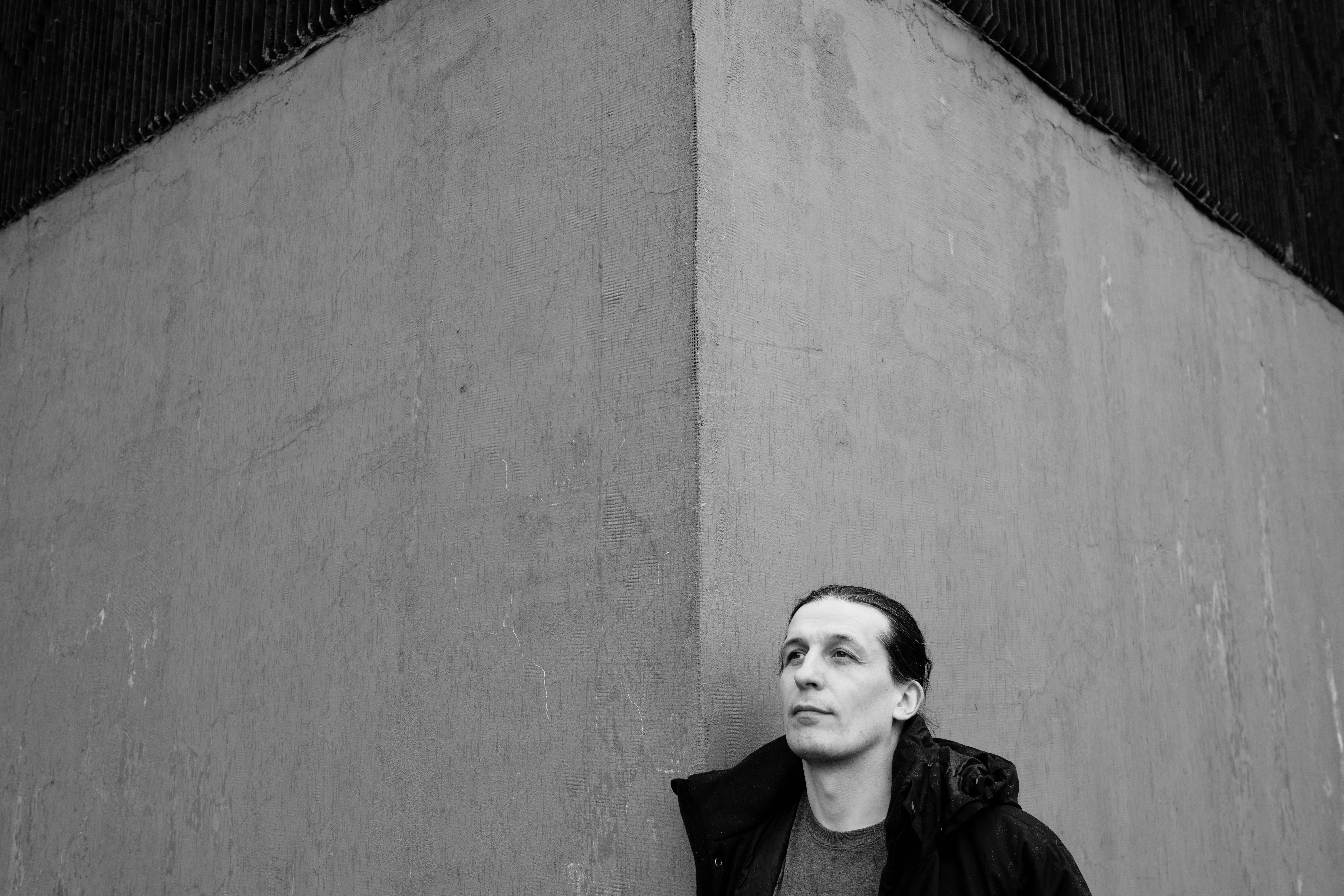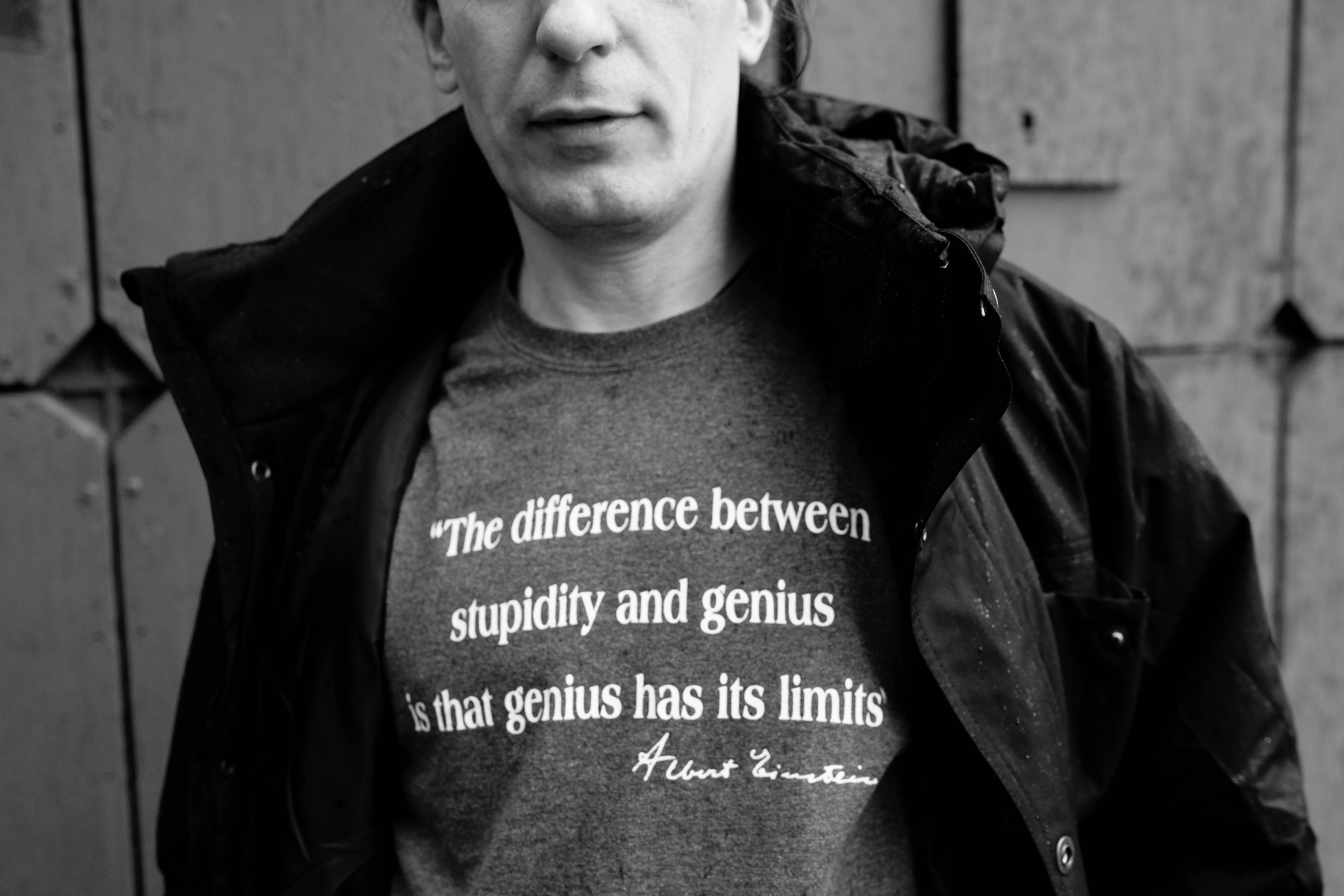Ukrainian novelist, poet, artist, art critic.
First of all, I would like to ask — how did you understand that you want to write fiction?
It happened so gradually that it's hard to tell. It turned out that for most of my life I have perceived everything around me through the prism of literature, perhaps because from childhood I was surrounded by books that belonged to my great-great-grandfather, great-grandfather, grandfather, grandmothers, mother, and father... I myself began to collect my own library early. Another reason is that I was taught at school by the wonderful Natalya Nikolaevna Sidoryak, a teacher of Russian language and literature, and, by the way, the daughter of a Ukrainian writer of the sixties. During the lessons, the works that we went through were somehow fantastically adapted to real life and to the present: the stories of the characters, their actions, and their problems were tied to our experience. Even more — Natalya Nikolaevna supported literary situations with examples from her own life and from her experience. It was cool, beautiful, and organic. She had a very informal approach to teaching — very fresh and original. Paradoxically, she knew how to tell the history of Russian literature in such a way that this literature became Ukrainian-centric. This is actually very interesting: the teacher of Russian literature instilled in me a love for Ukrainian literature. It seems that at the age of 16 I already firmly knew that I would become a Ukrainian writer.
How do you feel about literature in general? What does it personally mean to you?
For me, literature is, perhaps, something like a super-powerful drug — for me as a writer, I mean. I cannot live without it. I can't help but write. But literary creation is not an enjoyment at all; I do not enjoy writing. This is not happiness — happiness is in something else. It is not inspiration — even more suffering than inspiration... I am always amazed by writers who are alcoholics or drug addicts because when you are getting high on literature, what other addictions are needed?

That is, literature is the highest form of addiction?
For me personally — yes. You know, it's generally strange for me when a writer is asked something. In general, I would start a conversation with this. Asking a writer, or looking for answers while communicating with a writer is, in my opinion, a rather strange activity.
Why?
Perhaps because the writer is not the person who answers the questions at all, but rather the person who asks the questions. We are just accustomed to the Russian tradition — "a writer is like a prophet, like a messiah" — so that he/she has to answer questions. But Tolstoy, for example, was a genius precisely when he did not answer questions, but only posed them. I find it strange when journalists ask a writer something like “What can you say about the situation in Donbas? And what about the [Ukrainain] language law?". And the writer starts broadcasting. For me, it looks inorganic, absurd. What can I say here? The writer is not yet a Pythia or a Delphic oracle. This is an eternal and conscious dilettante. He knows nothing and can do nothing. He is a child running under everyone's feet and tugs at the adults' sleeves and asks, “What is this? How does it work?"
A writer shouldn't speak out — are you talking about that?
No, a writer can and should speak out, mostly through writing, but perhaps there is no need to look for answers in these statements or in his/her work — at least in most of these statements. I'm talking about accents. In a sense, the writer himself/herself interviews the world around him/her. In books, the writer, first of all, raises questions, the answers to which must be found by another — the reader. Something like this.
If I understand correctly the logic of the questioning of writers, the expectation is that the writer is outside any social or political conjuncture. Therefore he /she can give an unbiased and balanced answer to acute social questions, but I also understand your logic. Therefore, I want to ask who, what social group, has the moral right to answer questions?
I do not know. Definitely not a writer, in my opinion. The answer to specific questions, first of all, should be a professional in this specific field from which the question posed is taken. And about the non-bias of the writers... Have you ever met such people?
Okay, let's leave the socio-political plane. Recently, a small discussion has arisen in literary circles — what should prose be? Concrete, clear, and athletic, or poetic and sensual? And I have two questions about this: do you think a writer should comment on his work? And secondly: what do you think about the division of prose into concrete and poetic?
I'll start with the second: it all depends on the creative tasks that the writer sets for him/herself. Prose can be poetic; it can be specific. It's just a way for a writer to express him/herself and to create his/her own artistic world. A writer chooses for him/herself such a path and such tools that are the most comfortable. The only thing that is really important (at least now it is important for me)
in literature is that there should be no stubbornness. "It should be just like this" — this should be avoided. Perhaps the time for categorical statements in literature has passed? What do you think? And on the first question — of course, self-commenting can be useful and interesting. I listen and read a lot of literary-centric things with interest, but in my particular case, self-commenting is not even so unnecessary for me as uninteresting. Not interesting yet ... But, perhaps, from the end of summer everything will change.
I know that you have been reaching for a long time towards realizing your own poetics and realizing the literary value of your own texts. When did you realize that you could already be published?
I just got tired of throwing away what I had written. I had been writing for a long time, then throwing it away, writing it again, and throwing it away. Finally, I got tired of throwing it away. Plus, I realized that what I wrote a year ago, two years ago, is no longer so annoying. It is annoying, but not fatal. Therefore, I decided that others should not be annoying, either. You just need to wait out this moment.

Tell us about your book Summer-ATO, published by the publishing house, Lyuta Sprava. How was it written; what inspired you?
In fact, it is two books. They were supposed to be released in different publishing houses, and at the beginning of September ‘14, they were fully completed. One book is about the Maidan; the other is about the first months of the ATO, up to and including the Ilovaisk tragedy. And there are two different levels of the author's presence. The events of the Maidan were described from a distance of several meters, even centimeters. The events of the war, on the contrary, were like a look at the war from the rear. These are mainly stories that echoed from the front to the rear, transformed along the way into a fairy tale and myth. They existed in the frame of others’ stories, which at first glance had nothing to do with the ATO theme... When I started the first story in September 2013, I wanted to do something like the prose of Sei Shonagon, but considering, of course, hundreds of years of literary history that have passed since the time of her work, and the huge differences in Japanese and Ukrainian contexts.
We are now sitting in Pechersk, next to the Botanical Garden. I wanted to write about this particular Kyiv district.
This is a kind of diary of impressions — every day I left home to write something. It is reminiscent of sketches from nature, which are painted by artists. But the sketches are unusual. Objects and phenomena here have been transformed into surrealist-mythological images. I was writing all of September, October, and November, and I realized that the prose remained too flat, it lacked something. It all resembled an exhibition of paintings, perhaps not bad, but painted in the same manner, very similar in color to each other. The prose, in my opinion, was too monotonous, too smooth; it lacked a nerve, an accent. I already thought of stopping the experiment, but the Maidan happened, and it turned out that the tragedy, death, pain, and struggle of the Maidan — this is exactly what this prose lacked. A bright stain of blood on the finished snow filled all other written fragments with deep meanings. Maidan has brought this measured prose-poetry to a new level, and transformed it into something more.
You used such an interesting metaphor: prose like an exhibition. I know that you are closely connected with painting. How much is the mutual influence of painting and literature happening here?
I am an art critic by education. This is my assembly point. By and large, an art critic is a translator — a translator from the language of a picturesque, drawn image into a language of words and sentences that is more universal for mankind... It is organic for me to be a person on the border of the visual and the verbal — to be on the border of two things in general. I am at home among strangers working at the intersection of prose, poetry, painting, and even reporting... By the way, it was just as a kind of reportage that the book was perceived in Poland, and now Summer-ATO claims the prestigious reportage prize of R. Kapuscinski.
When you were writing your book, did you feel some kind of literary tradition behind you?
I did not think about that. I just had to write a piece of text every day. I went to the Maidan exactly as a writer — I watched and thought. I was interested in what was happening. I did not take an active part in the events. I wanted to write a book about it from the very beginning, from the very first day.
This overlaps with what Robert Graves described in his book The White Goddess. A poet, skald, who is watching the battle from a high hill in order to write a poem about it. No one had the right to touch such a poet, neither of the warring parties.
During the Maidan, I was not just on the hill, I was in the thick of it, and I understood that now I needed to catch a nerve. I needed to capture my mood. This was not an ordinary reportage fixation. It was necessary to describe, first of all, not what I saw , but what it all meant. I understood, rather even felt, that the birth of a new Ukrainian myth was taking place before my eyes, which would shape consciousness for tens and hundreds of years, and it was its birth that I wanted to display.

Such a slightly provocative question: Sergei Zhadan once said in an interview that every Ukrainian writer, if working hard and efficiently, would earn him/herself a decent life. What do you think about this statement?
Well, it's like if one of the Ukrainian oligarchs starts talking about the fact that actually
any Ukrainian, if he/she works hard, will certainly become a millionaire... But we know that this is not so. In Ukraine, it seems to me, the work of a writer is very hard and ineffective work. Of course, you can earn money by literary work, but I very much doubt that the literature I make will ever bring in a lot of money. Of course, as a writer, I can probably make money, but so far in Ukraine it is difficult to make money with such literature that I like and which I just want to write. Personally, it is much faster and easier for me to earn in a different way, so that later I can write what I want. My prose, in its form, in its essence, cannot become commercial, although it is quite possible to sell a circulation of a thousand or several thousand copies. The problem of Ukraine is a small “fodder base” for writers and a small number of writing strategies that can lead to success.
What's your writing strategy?
My favorite literature resembles a gourmet store. There are delicacies not only in restaurants, but also in bookstores, such as books which are delicacies. So I want to create something like that. Unfortunately, in literature, unlike in cooking, a delicacy costs the same as a fast-food pie. No one will pay a fair price for a book that took years to create like a bottle of rare collectible wine, and no one is likely to print it in 100,000 copies. There is a kind of literature that cannot be written quickly. It cannot be mass-produced. It must be laid back, licked, polished, and edited for years. Such literature is also needed, but in Ukraine the writers who work with it are not always financially successful. Which may even be a good thing because they allow themselves to do whatever they want.
And what is the point of such literature, which is so difficult to write?
There are people with special literary needs (I am one of them). So, such people need a special type of literature. There are things that the mainstream for-readers-writer simply will not notice. Today, you and I were walking down the street, and you ran past a small, inconspicuous, banal flower because you were in a hurry to interview. You were interested in me. And I was interested not so much in the interview, but this springtime, purple little somethin' next to the trunk of a linden tree, wet from the spring rain, covered with a fine dust of dew. By the way, it was one of these lime trees that I described in Summer-ATO. For several hours I will stick in the rain on this inconspicuous spring motif, then, perhaps, I will write a ten-line fragment about an autumn leaf, about a cigarette butt that hid under this leaf, like a bum in a tent. In the end, I will add something about this inconspicuous flower (the only delight for a cigarette butt). How many people in Ukraine will read this? So few! But they exist! And they will remain unhappy without their literature.
And from a pragmatic point of view (such literature is laborious, complex, will not work as a product), what is to be done here?
What I do: earning money outside of literature for literature!
Should the state somehow help such complex literature?
This is not a question for me; this is for the state. If for them several hundred or thousands of people with special literary needs mean something, of course, such literature must be supported. Although, I think, the question here is not so much even for an abstract state as for its citizens, for some (also quite few) inhabitants of this territory, for their humanity, and for their readiness to help people with special literary needs.
Do you think literature and art have a metaphysical function?
I do not know. Perhaps they do. At least I like literature, which has a metaphysical plane. But I think that such a plane is not obligatory. This is only one of the possible options.

Tell us about your current literary work. What are you working on now?
Perhaps I am one of the few Ukrainian writers who allows him/herself to not rush anywhere in their work: write something and put it aside to take on something else. I recently finished a story that I had been writing for ten years. It is about the writer's dacha in Koncha Ozernaya, about its inhabitant, the old Soviet Ukrainian classic writer and, at the same time, a snitch. It is a story-memory of his grandson. Such is the painful antinomy — the grandson knows everything about his grandfather. He has no illusions of him, but incredibly loves the old bastard. This is something very, very personal, and intimate. In this story, I try not even to formulate, but only to outline, to grope my attitude towards Ukrainian writers of the Soviet era. I am this very grandson.
Are you working on something now?
Now I'm finishing one thing, or rather, I'm going to start finishing it if I get out of Kyiv to the Poltava region, to my dacha. Perhaps it can be called a novel, although, rather, it is a life story. It is called “The Life of a Ukrainian Flyer, a Hero”. The work is dedicated to the feat of the pilot who, sitting on the top of an old poplar, saved Ukraine from a raid by the Russian Air Force. He, at first glance, a crazy freak, the son of a statue of Lenin and a local woman, whom everyone called Nadezhda Konstantinovna, turned out to be a very cool dude, like the guys from the volunteer battalions in ‘14. I still have to describe the death of the protagonist. This, to a certain extent, is a continuation and refinement of the story about Koncha Ozernaya. They are similar, as pine and poplar are similar to each other…
Very intriguing! Hope someone will publish it!
Only if I don’t break off, if I don’t get carried away with another story or novel, then I’ll finish "The Life..." And also, if, after reading “Koncha” after a while, I don’t decide to rewrite it, as has happened more than once in the past ...
translated by Kateryna Kazimirova
Ukrainian novelist, poet, artist, art critic.